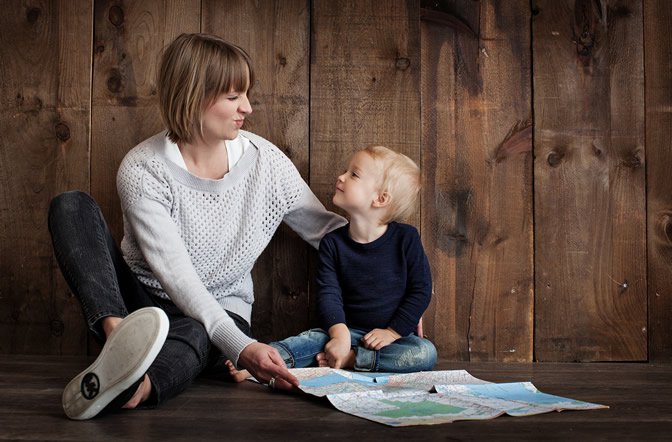You don’t need to be an expert on the internet. If you want to know what your child is doing online, the best thing you can do is talk to them about it. Children love to talk. Ask your child to show you their favourite things to do online, and take an interest in what they do – just like you would their day at school.
Talk about the good stuff, not just the bad
Sometimes, as adults, we’re guilty of only talking about online activity when we’re annoyed about it, or thinking about confiscating a device. It’s helpful to find time to just be curious, interested, and to praise children for their creativity online and remind ourselves how amazing technology can be. To help with this, why not try playing their favourite game with them?
By having balanced discussions about our children’s online activities, and reinforcing our role as someone they can talk to, they’re more likely to come to us when they’re worried or concerned.
Best age to start talking?
There isn't a 'best age' to start talking about staying safe online any more than there is about staying safe in the real world. From the moment you start interacting with your child around technology, you should be talking with them about using it safely.
Don't assume they know more than you - children don't always know how to use blocking and reporting tools. When they're very young that might mean telling them not to click on anything without showing you first. As they get older you'll be able to explain more complicated things.
Try to strike the right balance between keeping an eye on your child and giving them the independence and freedom to explore. Simply sheltering them from the online world might not help them in the long run. They need a chance to learn how to behave online, and find out what’s out there.
Talk to Teens
Teenagers may be less inclined to talk about their online activities. Once kids reach secondary school, they’ll be looking to explore their independence and identity. Children need to develop their independence, take risks and develp their own coping mechanisms. You should talk to them about what they’re doing online without intruding too much.
You'll be relying on things you taught them early on, and doing everything you can to make sure they know you're there if they need you. Remember that older children can be a powerful force for good in helping to teach younger siblings to stay safe online, so keep the family communicating.
Keep Talking
Remember that children develop at different rates, and what they get up to online will vary with age and maturity. Keep talking to them so that you can keep up to date with:
- What they see
- Who they meet and interact with
- The things they do.
Be a good role model
Don’t forget to think about your own online behaviour to help set a good example. It might not always feel like it, but your child does notice how you act and follows your lead. Try developing a family agreement, discuss it, and remind everyone why it’s important. So, if you agree no phones at the dinner table, make sure you stick to it yourself!






